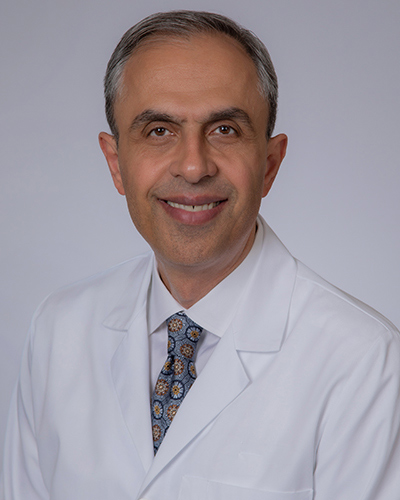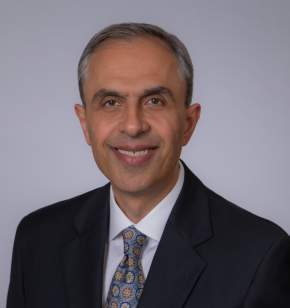What Are the Risk Factors for a Brain Tumor?


People of all ages, genders, and backgrounds can develop brain tumors, but some have a higher risk than others. Knowing the risk factors of a brain tumor is vital for ensuring your lifestyle, habits, and environment aren’t putting you at risk of brain tumors or, worse, cancer.
Brain Tumor vs. Brain Cancer
Let us first clarify something that many people get confused about.
“Are all brain tumors cancers?”
The answer is no. Some tumors are non-cancerous or benign. They grow slowly, have membranes or distinct borders, and rarely spread. However, they can grow and occupy space in the brain, which, in turn, can put pressure on certain parts of the brain tissue that control specific bodily functions like mobility, speech, and cognitive function. Benign brain tumors can be dangerous if they compress vital brain structures and cause severe dysfunction.
The opposite of the question is correct: all brain cancers are tumors. Cancerous brain tumors are called malignant, and they attack nearby healthy brain cells. Malignant tumors are dangerous because they change and destroy vital brain structures. Worse, they can spread to other parts of the brain.
Considering the dangers of both malignant and benign tumors, it is only right to be wary of them altogether and be on your guard if you possess several risk factors for a brain tumor.
What Is a Health Risk Factor?
A health risk factor is any attribute that increases a person’s likelihood of contracting a disease or developing a health disorder. These factors can be biological, environmental, socio-economic, quality of clinical care, habits and behaviors, and lifestyle-related activities. Family histories/genetic factors and events that expose people to radiation, viruses, bacteria, chemicals, etc., can also count as risk factors.
Why should you have your surgery with Dr. Cohen?
Dr. Cohen
- 7,500+ specialized surgeries performed by your chosen surgeon
- More personalized care
- Extensive experience = higher success rate and quicker recovery times
Major Health Centers
- No control over choosing the surgeon caring for you
- One-size-fits-all care
- Less specialization
For more reasons, please click here.
Brain Tumor Risk Factors
Before anything else, we must stress that the cause of brain cancer is still largely unknown. Similarly, the risk factors for brain tumors and cancers are less defined than those for other diseases like cardiovascular and pulmonary diseases.
Below are the most common brain tumor risk factors everyone should be aware of:
1. Cancer
Pre-existing cancers that metastasize or spread throughout the body are risk factors for brain tumors. They can lead to secondary brain tumors, which are far more common than primary brain tumors (tumors originating in the brain). But to be more specific, the location of the primary cancer is considered the risk factor.
The following cancers have the highest probability of spreading to the brain:
- Breast cancer
- Lung cancer
- Melanoma (skin cancer)
- Kidney cancer
- Colorectal cancer
2. Age
Brain tumors can develop at any age but are more common among children and older people. For instance, the risk to healthy adults increases as they age closer to 65.
The risk factors for specific types of brain tumors also vary in relation to age. For example, medulloblastomas are more common among children, while gliomas are more common among adults. Meningiomas and craniopharyngiomas can happen at any age, but the risk is highest for people over 50.
3. Gender
Men, in general, are more at risk of brain tumors, except for specific types like meningiomas, which are more common among women. Similarly, women are less likely to develop medulloblastomas as they mainly affect men.
4. Race/Ethnicity
Certain races are more likely to develop certain types of brain tumors. For example, Caucasians in the U.S. are more predisposed to gliomas, while African Americans are at higher risk of meningiomas. Similarly, the risk of brain tumors is twice higher among Northern Europeans than among the Japanese.
5. Genetics/Family History
It is widely believed that brain tumors are hereditary, but there is little scientific evidence proving this. Nevertheless, the medical community acknowledges that a family history of certain diseases can affect one’s chances of developing brain tumors.
For example, Li-Fraumeni syndrome and Von Hippel-Lindau disease are inherited conditions observed in families with histories of rare brain tumors.
The American Society of Clinical Oncology (ASCO) agrees, reporting that 5% of brain tumors have been linked to hereditary conditions:
- Neurofibromatosis Type 1 (NF1): A hereditary disease characterized by light brown spots in the skin (“café-au-lait spots”), NF1 causes tumors to grow along the nerves. Some tumors become visible bumps on the skin and can grow anywhere in the body.
Although NF1 tumors are mostly benign, the disease increases the risk of sarcomas (a general term for cancer that starts in the bones or soft tissues) and brain and spinal cord tumors.
- Nevoid basal cell carcinoma (NBCCS): Also called Gorlin syndrome, NBCCS is a hereditary condition that causes multiple basal cell skin cancers to form on one’s palms, soles, bones, and eventually in the brain. A person born with NBCCS may also have a developmental disability and disfigured facial features like wide-spaced eyes, a prominent forehead, a broad nose bridge, and skin cysts.
- Tuberous sclerosis complex (TSC): A genetic disorder whose symptoms or cancer risks can be passed from generation to generation, TSC causes cells to reproduce far too quickly, resulting in non-cancerous tumors forming anywhere in the body. It primarily affects the skin (can sometimes affect a person’s appearance), kidney, heart, and brain.
TSC progresses slowly, and people with mild cases can still have a normal life expectancy. Severe cases, on the other hand, can lead to serious complications – including an increased risk of developing brain tumors (giant cell astrocytoma) and kidney cancer.
- Turcot syndrome: A variant of familial adenomatous polyposis (FAP), which is a condition wherein a patient develops over a hundred adenomatous polyps. Turcot syndrome can lead to colon cancer, one of the cancers listed above that is likely to spread to the brain.
6. Harmful Exposures
People can be exposed to harmful factors at home and work, even when receiving medical treatment. The following are examples of exposures that increase the risk of brain tumors or are still under investigation:
- Radiation: Imaging machines like CT scanners and X-rays emit radiation in minimal quantities that shouldn’t cause brain tumors. But for people who received ionizing radiation therapy (especially from an early age) and frequently undergo imaging tests to diagnose a disease, the combined radiation exposure becomes a risk factor for brain tumors.
- Industrial Chemicals: Evidence that exposure to solvents and other industrial chemicals leads to brain tumors are still inconclusive. Nevertheless, it has been observed that certain brain tumors are common among people working in rubber manufacturing, drug manufacturing, and oil refining – industries in which workers are frequently exposed to industrial chemicals.
- Viruses and Bacteria: Infection with Epstein-Barr virus (EBV), which causes “mono,” increases the risk of lymphoma in the central nervous system, particularly in those with weakened immune systems. Another common virus, cytomegalovirus (CMV), has also been found in brain tumor tissue.
- Seizures: Seizures have long been linked to brain tumors, but it is still inconclusive if the tumors are due to seizures or vice versa.
- Obesity: In the UK, it has been observed that obesity increases the risk of meningioma and is the cited potential cause of two in every 100 brain tumor diagnoses in the country.
Speak With a Specialist to Assess Your Brain Tumor Risk Factors
A person’s predisposition to brain tumors increases with every risk factor they possess. But since there’s still much about brain tumor risk factors that are inconclusive, it helps to consult several oncologists and neurosurgeons and obtain second opinions if you are suspected of having a brain tumor.
Dr. Aaron Cohen-Gadol, one of the world’s leading specialists in oncology and neurosurgery, is an excellent source of information and advice on treatment for brain tumors. He has performed over 7,000 complex brain surgeries and authored more than 530 peer-reviewed research publications in neurosurgery. If you want to consult a specialist whose authority and expertise you can trust, please reach out to Dr. Aaron Cohen-Gadol.
Request a second opinion and schedule a consultation with Dr. Cohen-Gadol.











